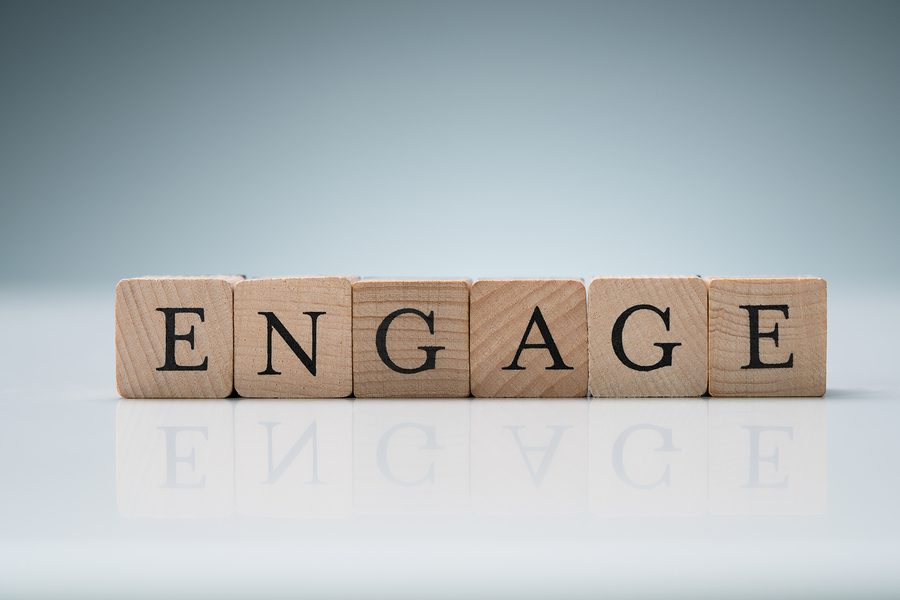
Feb 8, 2020 | Current Event, ICONIC
Perhaps it’s because of today’s divided political climate. Sometimes
it seems that true heroes are difficult to find.
Yes, we see stories of individual acts of incomprehensible
bravery. However, it’s exceedingly rare to observe someone display the type of
consistent courage and persistent performance of excellence that one must in
order to be considered as an enduring HERO.
In the past few days, Tammy and I have had the privilege of
spending a few moments with General Chuck Yeager. The General is a big fan of
the Oak Ridge Boys, who are also great friends of ours. The Oaks connected us
during a weekend concert in Laughlin, Nevada. We sat with General Yeager and
his wonderful wife, Victoria at the show, and we joined them with members of
the Oaks for dinner afterwards.
In all candor, we didn’t speak much with him, as he was
naturally focused on his good friends. This post is not to suggest that he
knows what I speak and write about, or to imply anything other than relating to
you the honor we had to share a couple brief, passing moments with the General
and his wife. (And, we certainly appreciate Victoria’s kindness in the
conversations we had with her!)
However, this encounter
certainly has me thinking about the meaning of heroism. For example: is there a
difference between heroism and bravery?
As I’ve pondered it — and it may just be simple
“hair-splitting” semantics — but, it occurs to me that bravery can be displayed
in a single act.
Heroism, on the other hand, is a bit more complex. It’s
found in someone who has been consistently brave, despite the potential
consequences, in a manner that is profoundly inspiring.
And, while you and I can never aspire to shoot down enemy
aircraft, be first to break the sound barrier, or be called the “greatest pilot
to ever fly a plane,” we can set a goal to be consistently, dependably brave at
what we do. Perhaps we could even achieve a small level of heroism.
In the research for “ICONIC,” one of the five factors my
research discovered is that those individuals and organizations who have
attained the highest level of distinction were willing to “play offense.” In
other words, while they knew what competitors were doing, they were committed
to charting their own course.
Consistently, these iconic performers were willing to be
brave enough to follow what their gut, research, and data told them was the
path to success. They weren’t choosing to play the game just like all the
others.
At High Point University, I serve on the “in residence
faculty” with Steve Wozniak, who not only was brave in building a “personal”
computer, unlike those of the time…but continues to inspire with visionary,
“out of the box” thinking. And, another of our group, Marc Randolph, co-founded
a little business called Netflix…and continues to motivate with his investment
of his resources in future disruptive organizations and thinking.
My great pal, Sage Steele of ESPN, has overcome significant
professional and personal challenges to become one of our nation’s most
highly-respected sportscasters and serves as a role model to all in her
industry.
I consider all of these colleagues to be heroic in their own
right.
And, that’s what YOU can become, too. I certainly grant that
you and I may not receive the universal acclaim of General Yeager, Wozniak,
Randolph, or Steele.
However, each of us can reliably display our bravery in how
we stand up for what’s right, break the mold of traditional thinking as we play
offense, expand the experience that we create for customers and colleagues, and
inspire others to perform at their highest level. If we are willing to
consistently do this, it might be considered heroic.
- For what I’ve discovered is that the opposite
of heroism isn’t cowardice.

Jan 18, 2020 | Current Event, Customer Experience
Currently, I’m in southern California about to speak at an
enormous conference for the National Association of Music Merchants (NAMM).
Tammy and I decided to come over from Las Vegas for NAMM just a bit early. We
heard so much from friends and fellow speakers about what an amazing event this
is we wanted to experience as much of it as we could.
And, after just one evening, I can already see how right
they are. We strolled around in the Convention Center area, the Hilton, and the
Marriott, and heard fantastic live music. We also enjoyed a spirit of fun and
positive good times from the huge crowd.
Candidly, there was a moment in the evening when Tammy asked
me if I was a little bit “down.” I replied that I was. There was fantastic
talent on display. It was all from singers and bands that few would recognize.
It dawned upon me – and made me a bit sad to consider — how miniscule these
performer’s chances were of finding a level of success like the icons of the
music industry.
So, why do they continue to
pursue it?
Several years ago, I interviewed several financial advisors
for a project to determine the elements of extraordinary success in that
business. As small and trite as it may sound, I found it came down to one
pivotal aspect.
Some advisors viewed creating a client experience as one of
those things that they had to do. They saw themselves as financial
experts who the marketplace expected to play nice with clients investing with
their practice. In other words, it wasn’t something they enjoyed – or even prioritized
– but, it was a cost of doing business, a chore to be performed.
However, the extraordinarily successful advisors had a
totally different outlook. They perceived themselves somewhat as a concierge.
Their goal was to be of service in any aspect of their client’s life. Many of
the most elite advisors were unable to describe how they could perform any
function of their fiduciary responsibility without including a superior client
experience.
These top producers expressed, “It’s just who I am.” An amazing
relationship with their clients was the source of their greatest joy in their
profession. It was part of their professional DNA.
I suspect a similar aspect is at play here at NAMM. Whether
they are making a lot of money or not, music is “just who they are.” The
engagement with the audience for the performers – or with their customers for
the music stores – is part of their professional DNA.
How do YOU feel about customer
engagement?
Whether it is an audience at a concert, a client in your
financial services practice, or a customer at your business, is delivering an
Ultimate Customer Experience ® part of your DNA?
Is creating the highest level of engagement “just who you
are”? Or, is it something you have to do because the marketplace now expects
it?
The difference might appear
subtle at first. But, the results created by the right mindset and approach can
generate exponentially better results and lifetime customer value.
- Would you like to be in the audience at a
concert of a musician who felt as though she had to be there because her
manager and the marketplace expected it?
- Or, would you rather attend a show by a
performer who felt that creating an amazing experience for her audience is just
“who she is” and part of her DNA?
YOUR audience – your customers – feel exactly the same.

Nov 2, 2019 | Business Distinction, Current Event, Personal Distinction
Video reminder from Cabo to take care of yourself and take time to recharge for work ahead. It’s required for creativity needed to create distinction for the future!
Don’t be afraid to take a little time to unplug and I’ll see you here next week.

Sep 21, 2019 | Current Event
Have you ever read something on social media or elsewhere
online that sounded really persuasive…then, perhaps you “liked” it or even
added a supportive comment…without really knowing for certain whether the post
was accurate?
- Sadly, many of us – including me – have done exactly
that.
Not to be political, this is just to cite one example: the
President’s son, Eric, retweeted a post that featured comedian Tim Allen
stating that the costs associated with President Obama’s website for the
Affordable Care Act were higher than those to build the border wall advocated
by President Trump.
First off, that’s not true: Bloomberg fixed the
HealthCare.gov costs at $2.1 billion – estimates for the wall, according to
President Trump, are in the $15-21 billion range.
But, secondly, Allen never said it. This isn’t to say that
the “Home Improvement” star isn’t in favor of the border wall – it’s just that
he never made the statement attributed to him.
However, like many of us have done, Eric Trump saw a quote
he liked from a source he appreciated – and reposted the falsehood. I’m not
attempting to suggest he knew it was untrue; most of us just assume the
accuracy of a statement when we like, repost, or comment positively on a meme
like that.
I’m currently reading the new book by the great author,
Malcolm Gladwell. The thesis of the book is, basically, that even highly
trained experts like CIA agents and Federal judges cannot effectively ascertain
when someone is telling the truth. In other words, we all suffer a bit in the
accuracy of our analysis of information.
All of this does indicate, though, that we need to do just a
little homework before we proceed to spread information in today’s wired world.
A while back, I heard from an author who was simply
gobsmacked: she’d subtitled her first book – one she had worked long and hard
to write – with exactly the same title as my first business book. When it hit
the market, many people said to her, “You do know Scott McKain’s book on this,
right?” And, while book titles cannot be trademarked or copyrighted, it’s hard
to stimulate a strong public response for an idea that appears to be
derivative.
- In other words, she had done all the hard work
to write the book – but evidently never took the time to do a simple Google
search on the title.
Our company owns the Federally registered trademark on a
term I first started writing and speaking about in the early 1908’s: “Ultimate
Customer Experience. ®” We have legal intellectual property protection for all
training, education, speaking, and knowledge-based efforts. It’s my brand…my
mark…in the customer experience world.
Yet, we are constantly dealing with training companies,
research firms, speakers, and workshop leaders who are trying to deliver
programs on how to create an “Ultimate Customer Experience.” It appears that
they can’t be bothered to do the homework of checking with Google or performing
a Trademark search to see if someone else owns it before they launch their
programs.
It’s akin to constructing a
house on land that is someone else’s – then acting as if you’re upset that you
can’t own the structure. Wouldn’t you at least check first before you started
the building?
The point of all of this is just a simple reminder that I
need – and perhaps you do, as well. It’s easier than ever to post, re-post,
advertise, and share information than ever before. And, all in all, that’s a
great aspect to the world we live in.
However, it also requires of us the added responsibility to
be certain that we’re not inadvertently sharing – or even profiting – from
content that isn’t true…or isn’t ours.
My great friend, the “Dean of NFL Officials,” Jim Tunney,
always ends his weekly “Tunney Side of the Street” posts with a “Will you?”
question. With appreciation and admiration for him, I’ll simply ask:
- Will you think about the truth – and consider
the proper ownership– of what you share on social media and elsewhere in the
future?

Aug 11, 2019 | Current Event, News & Info
This coming week is one of my favorites of the year. We
start the Ultimate Business Summit with a Wednesday night reception at the
Luxor on the Strip in Las Vegas.
While the participants in the program tell us that it has
significantly enhanced their success in business and life, one of the most
surprising aspects for me has been how much that I’ve learned from the folks
who come to be taught by Larry Winget, Randy Pennington, and me.
Here’s one example: many small business leaders comment that
the available workforce is so scarce, and that there just “aren’t any good
people out there looking for work.” Yet, through our work at UBS, we’ve learned
that some entrepreneurs and sales managers are successfully finding and
recruiting the best people.
How do they do it? There are many steps they’ve outlined at
the program — here are two that really stood out for me.
First, they view recruiting as one of the aspects of their
job every single day. For example, when the entrepreneur with this perspective
meets a great barista at Starbucks, they try to hire them! Because they have a
“hire for attitude, train for skills” approach, they are always on the lookout
for good people with great attitudes.
Are you ALWAYS looking for someone with a terrific outlook
and excellent communication skills to join and improve your team?
Second, they invest (and often a significant amount) in
educating and training for both the new employee and her managers. The reason: today’s employees seek engagement
with their colleagues and their managers. Too many businesses have had an
approach of “well, just watch Ol’ Bill and you’ll learn how it’s done” approach
to training. That just doesn’t work any longer, And, employees who are well
educated and trained early in their careers become more productive throughout
the life of their engagement.
We’ve all heard the old saw about “people aren’t loyal to
companies, they’re loyal to managers.” And, as that statement is true, it begs
the question: why aren’t we doing more to teach our managers how to create
higher standards of loyalty from their teams?
That’s part of our process at the Ultimate Business Summit.
We break down problems and situations in that manner:
- If having higher retention improves
profitability…
- If employees are loyal to their managers
rather than our organization…
- Why
don’t we teach and train managers to be better at creating employee loyalty so
we generate the results that we really desire?
PS: We have five seats (maybe fewer by the time you
read this) remaining for the Ultimate Business Summit this week in Las Vegas. What
would happen if your competition gets better and you do not?
Go to UltimateBusinessSummit.com for all the details. When you sign up, enter my first name as the coupon code and you can save

Aug 3, 2019 | Current Event, News & Info
Imagine for a moment being in a large room with almost 1,500
professional speakers! Try to envision how much energy — and maybe even ego —
that you’d find in a gathering of people who talk in public for a living.
That’s what I’ve just concluded this past week: the 2019 edition of “Influence”
— the annual convention of the National Speakers Association.
First off, it’s always great to get together with such
incredible friends. Speakers, as you may know, are kind of a strange lot. We
see each other very infrequently, because we are usually on the road traveling
to our own events — which also means we seldom have the privilege of sitting in
an audience and listening to other speakers share their craft and skill. In
other words, we have great friends we see once a year.
Thank goodness for social media. Through it, I’m able to
stay in close touch with great friends — know where they are, how they’re
feeling about their careers and personal lives, and share triumphs and
tragedies — while only seeing them infrequently. I obviously wish we had more
time together.
- But, it’s better now than it has ever
been.
Secondly, it’s a time of extreme learning. The best in the
business share what has worked for them in an open forum with those who compete
with them for bookings. In NSA, it’s called “the Spirit of Cavett.” The founder
of the National Speakers Association was a legendary professional named Cavett
Robert.
When I first met Cavett many years ago, he told me, “I am
hearing some great things about you. You have an amazing future and will be a
superstar in this business.” It was such an inspiring moment for me! Little did
I realize this encouraging man was also saying the same thing to every other
young professional he met in the association.
However, Cavett’s generous spirit and open-book approach to
the business set a standard that is still adhered to — rather than try to
defeat each other for bookings and sales, instead we will all seek to “grow the
pie” and create more opportunity so everyone benefits. It’s an attitude of
abundance, not scarcity. And, it’s worked — professional speakers are on stage
at more events for larger fees than at any point in history.
- It’s better now than it has ever been.
So, what does this mean to you?
In this time of negativity…where people seem to be more angry and agitated, where many people have lost their sense of propriety and manners…sometimes it’s important to take stock of where we are compared to where we were.
I have tools now that keep me in better touch with friends
with whom I wish I could share more personal time, but career and commitments
interfere. It’s never been better.
I’m in a profession that is committed to lifelong learning,
where other pros willingly share what works — and what doesn’t — to enable me
to grow…and I do the same, in turn. It’s never been better.
This isn’t to sound like Pollyanna. We have challenges, obstacles, and problems.
But, it so many ways — it’s better now than it has ever been.
Perhaps we need to remind each other of that, from time to time.






